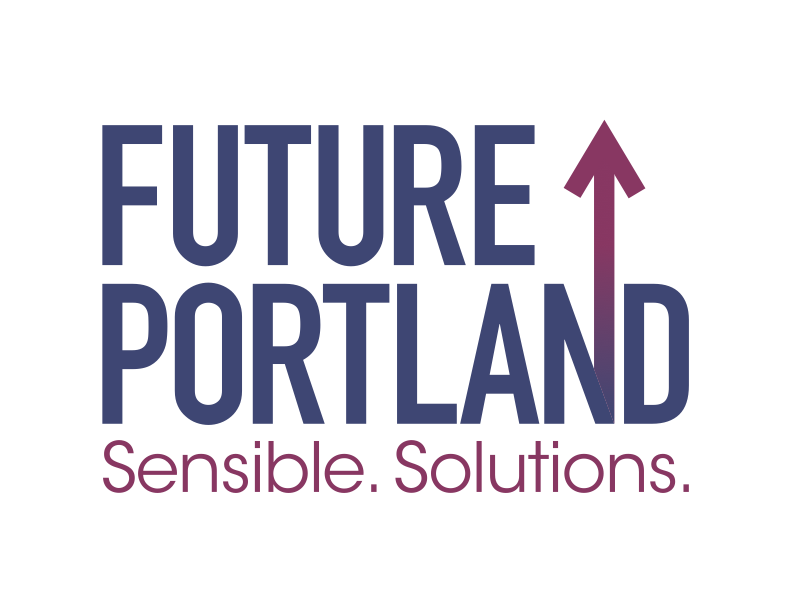Testimony to Multnomah County Board - General Overview of Ideas & Accountability to Help Homeless
We are here today testifying as a group. We represent nearly 2,000 neighbors from all corners of Multnomah County who have coalesced online to discuss the county’s challenges and potential solutions.
Ms. Vega Pedersen, congratulations on your new role as Multnomah County Chair. You are now in an incredibly important position. It is your responsibility to set the agenda and direct the spending for a county that serves over 800,000 people. As head of health and human services, your decisions going forward have the power to create a new trajectory of success and turn around how we currently handle the mental health, addiction and homeless crises we are facing.
Today we would like to share input specifically on the following 3 topics:
The Joint Office of Homeless Services contract;
Expanding low barrier shelters and sanctioned camping;
And following through on “Built for Zero”
On the first topic, we ask for several considerations as you renegotiate the Joint Office of Homeless Services contract.
First, it’s absolutely critical that the county make the City of Portland a true partner at the decision-making table. We want the county to work collaboratively with the city at all costs.
Add to that, bring in the mayors of ALL of the cities within the county to a seat at the table to come up with shared concerns and potential solutions.
Revamp the oversight board to include not only the nonprofit executive beneficiaries of funding dollars, but a diverse group of front line workers, emergency service providers, and regular community members whose tax dollars are at stake, as well as local business owners, particularly from the real estate industry that have been begging to help.
Now I’d like to shift gears to our second topic: shelters and sanctioned camping.
78% of Portlanders – surely that number is higher if the entire county were to be polled – are begging for sanctioned campsites to be created.
The county has the power and authority to create dozens if not hundreds of smaller sanctioned camping areas immediately. The ability to sleep without fear of being swept is something so many campers have asked for. Sanctioned sites would also make it much easier for volunteers to reach people who need their services. These sites do not need a suite of services, a basic fence, dumpster and toilet service would suffice.
We also ask that you consider transforming a multitude – not all, as we understand the need for women and children specific spaces – of current day shelters into 24/7 and low barrier (pets and couples allowed) shelters that seem to have the longest waiting lists. Fix the issues with the existing shelters, don’t just sit there and say “I understand why they wouldn’t want to go there, terrible things could happen” - you hold the purse strings to the contracts, you create the rules and oversight. And get some software to track bed / village openings and achieve inter-agency collaboration.
And finally, we ask that you consider immediate expansion of the pilot program to partner with community faith-based organizations to help connect them to service providers and resources to build more tiny villages.
Our final topic is Built for Zero. We ask that you truly implement the program we were promised. We can very easily and publicly see Clark County’s dashboard – where is our dashboard? We all know that having more data is the best way to understand the issue we are trying to tackle. The combination of all these requests would do so much in a very short amount of time to help save lives while at the same time cleaning up the county for all residents, both housed and unhoused, to enjoy again.
We can also use Built for Zero to help implement sorely needed residency requirement rules for assistance. We voted to tax ourselves to help Oregonians imperiled on the streets. Yet we are barraged with stories of folks recently moving here homeless and getting help ahead of people who have been waiting months and years - a service provider recently testified this as fact to Portland City Council.
We also want to see better metrics and data coming out of the nonprofits and the Joint Office. We want to know that the county is reviewing and has rules around who we are contracting services with. Rules like ensuring their tax filings are in order, or extra reporting requirements for newly formed nonprofits that can’t file yet. Exorbitant administrative costs need to be reined in and programs that aren’t producing results need to be fired. It would behoove the county and the Joint Office to take a look at the Houston, Texas model, wherein the county assigned singular tasks to nonprofits to help boost effectiveness and cohesiveness amongst a large group of service providers.
In closing, this commission is at a critical fork in the road in Multnomah County’s history: you will either continue to double down on the mistakes of the prior chair or you will chart a new path forward.
We need to hear more than “we housed 4,500 people last year.” We need to know who they are, where they came from, what worked, what didn’t, are they still housed, are they receiving job training or mental health or addiction services needed. Are case workers checking in to ensure these people succeed in staying housed? We’ve heard too many stories of people ending up back on the streets a few months later.
Thank you for taking the time to consider these action items when you are having meetings and discussions in the background as you create policy and budget decisions. We, and thousands of other county residents feel that focusing on these line items will eliminate the need to find yet MORE money and we’ll see we have what we need - we just need to ensure who we are giving it to are producing tangible results. And we desperately need to stop ignoring the thousands of people who are not being spoken about at all in these budget decisions that are lingering on the street and encouraging others from other states to relocate here and join them in their suffering.
Thank you.

